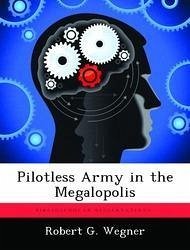This monograph answers the question, "Can unmanned aerial vehicles (UAVs) supplant manned United States Army attack and reconnaissance helicopters in the conduct of future urban operations "" and the answer is, "not completely. "" The future of US involvement in urban operations is likely to increase. Given that urban operations are of high probability in the future, the public 's probable aversion to casualties and the military 's conservative doctrinal approach to urban operations, the Army must find a way to counter the asymmetric advantages our potential enemies may possess in urban combat. Although Army aviation can provide mobility, intelligence gathering, and massive precision fires, its current aviation systems are highly vulnerable within the urban environment and a solution may lie in the employment of UAVs. UAVs were designed with a twofold purpose in mind. First, UAVs were intended to reduce the risk to pilot, crew, and equipment. The potential economic burden of losing high 13altitude reconnaissance aircraft or manned systems that may result in prisoners of war or personnel killed in action was significant enough to induce research and development to counter their loss. Secondly, freeing machines from the limitations of man expands the envelope for operations. Thus, the principal advantage of UAVs is a cost-effective system with greater capability and less risk to humans. Five criteria are used throughout this monograph to determine whether UAVs can supplant Army attack and reconnaissance helicopters. The criteria are capability, feasibility, acceptability, sustainability, and suitability. These criteria establish the test and focal lens by which research into fact, opinion, doctrine, theory, and historical evidence lead to conclusions and a recommendation for the future role and employment of UAVs in urban operations. An examination of the effects of urban sprawl and four case studies of urban operations since 1968 help determine the challenges for Ar
Hinweis: Dieser Artikel kann nur an eine deutsche Lieferadresse ausgeliefert werden.
Hinweis: Dieser Artikel kann nur an eine deutsche Lieferadresse ausgeliefert werden.








